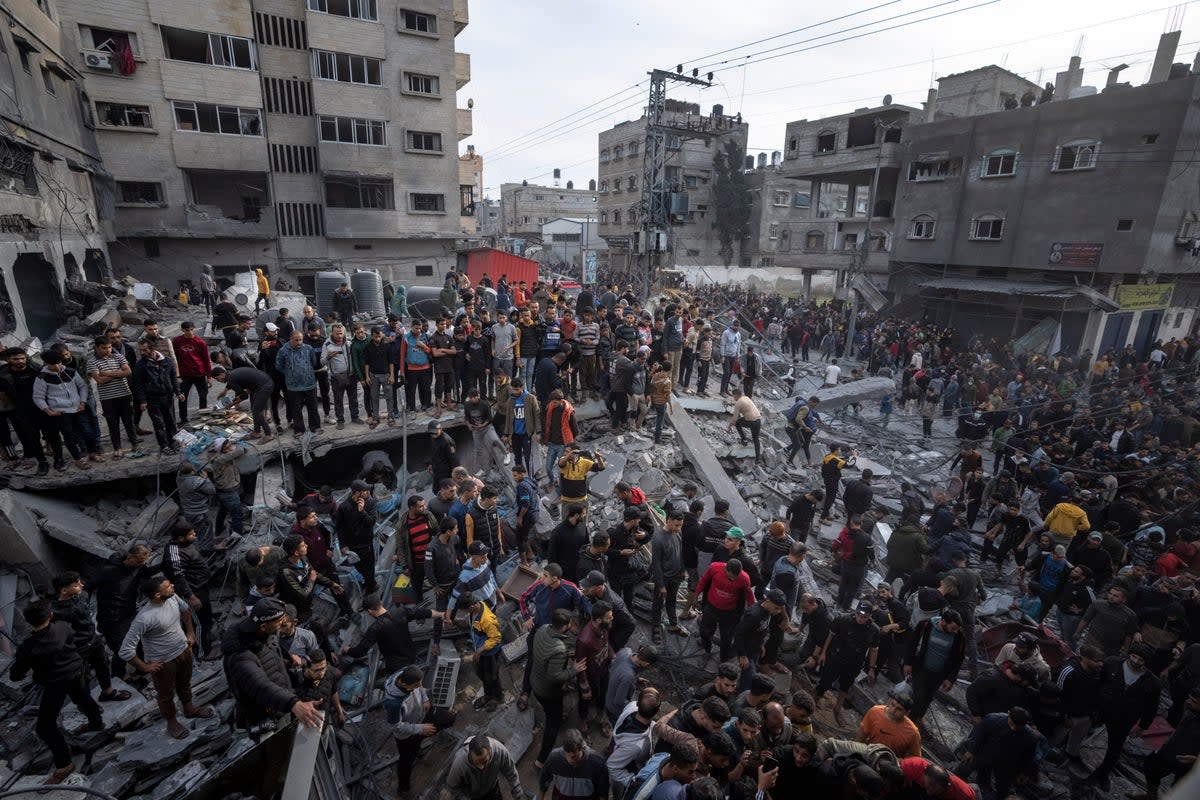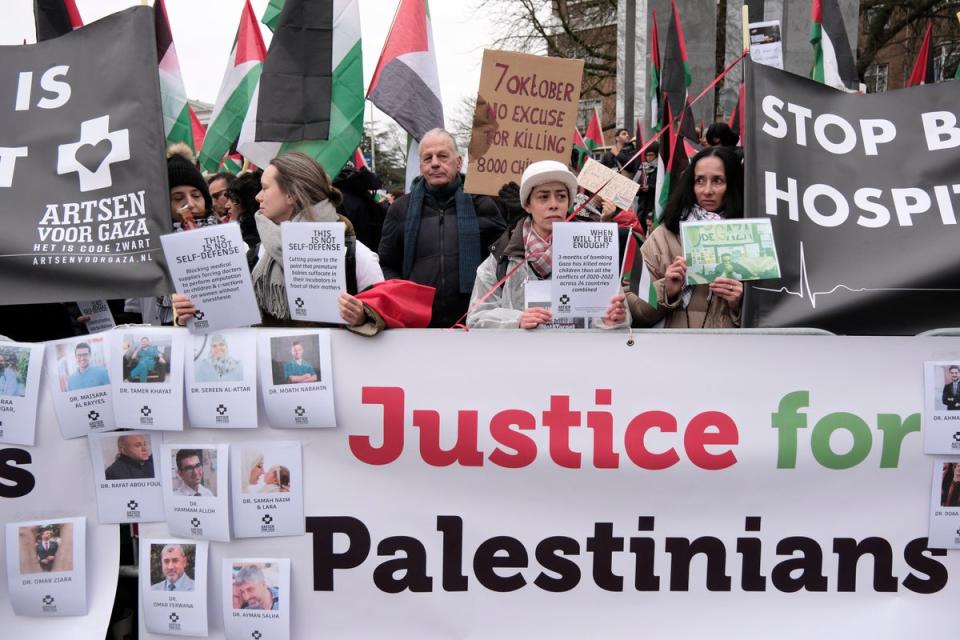Israel braces for interim ruling on Gaza genocide allegation from UN’s top court

Israeli officials are bracing for an interim ruling from the UN‘s top court on South Africa‘s allegation that the war in Gaza amounts to genocide against Palestinians.
The International Court of Justice (ICJ) is set to hand down a ruling on Friday. The Hague-based court could potentially order Israel to stop its military offensive in Gaza, which was trigged by a Hamas attack on 7 October in which 1,200 people were killed and another 240 taken hostage.
South Africa filed the case in December, alleging that Israel’s offensive – which health officials in Hamas-controlled Gaza say has killed 25,700 people and injured tens of thousands more – is in breach of the UN’s genocide convention signed in 1948 as the world’s response to the Holocaust.
A full ruling on the genocide allegations is expected to take months or even years. Friday’s ruling is only looking at South Africa’s request for emergency measures to protect Palestinians from potential breaches of the 1948 convention. But an interim decision against Israel could open the door to possible international sanctions.
Rulings from the ICJ – which deals with disputes between states – are binding and cannot be appealed, although the court has no mechanism for enforcing them.

In a bullish statement on Thursday. Israel, the state which rose in the wake of the Holocaust, voiced confidence that the ICJ would throw out the allegations, which it has repeatedly said are without basis. “We expect the ICJ to throw out these spurious and specious charges,” government spokesperson Eylon Levy, said.
The 1948 convention does not define genocide solely as killing members of a particular ethnic or national group. Crucially, it says the killings must be committed “with intent to destroy” that group.
During two days of hearings on the case earlier this month, South Africa said that Israel has gone beyond its intention to eradicate Hamas in the wake of the 7 October attack and is aiming to bring about the “the destruction” of the besieged territory’s population. “The intent to destroy Gaza has been nurtured at the highest level of state,” Tembeka Ngcukaitobi, advocate of the High Court of South Africa, told the court. “The evidence of genocidal intent is not only chilling, it is also overwhelming and incontrovertible,” Mr Ngcukaitobi said. “This killing is nothing short of destruction of Palestinian life,” Adila Hassim, another South African lawyer said.
Post-apartheid South Africa has long advocated the Palestinian cause, a relationship forged when the African National Congress’ struggle against white-minority rule was supported by Yasser Arafat’s Palestine Liberation Organisation.
Presenting its defence, Tal Becker, the legal adviser to Israel’s foreign ministry, described South Africa’s case as “a sweeping counter-factual description” that is “grossly distorting” the situation on the ground.
“Israel is in a war of defence against Hamas, not against the Palestinian people, to ensure that they do not succeed,” Mr Becker said. “The key component of genocide, the intent to destroy a people in whole or in part, is totally lacking. If there were acts of genocide, they have been perpetrated against Israel. Hamas seeks genocide against Israel.”
A spokesperson for prime minister Rishi Sunak said earlier this month that Mr Sunak believed South Africa’s case was “completely unjustified and wrong”. US secretary of state Antony Blinken described the case as “meritless”.
Israel often boycotts international tribunals and UN investigations, having long held that they are unfair and biased. But it sent a robust legal team to defend its position in court. Lior Haiat, Israel’s foreign ministry spokesperson, told the Israeli public broadcaster that the country chose to appear at the ICJ “because we are not guilty”.
Israeli prime minister Benjamin Netanyahu held a meeting in Tel Aviv on Thursday afternoon to prepare for potential scenarios after the ICJ ruling, attended by the attorney-general, the justice minister, the strategic affairs minister, the national security council director and a number of others. The New York Times also reported that it had seen more than 30 documents declassified by Israel to rebut the genocide allegations.
Part of South Africa’s case relates to public statements made by Israeli leaders that it says are proof of intent to commit genocide. In response, the declassified documents are part of Israel’s case to show that whatever politicians may have said in public was overruled by executive decisions and official orders from Israel’s war cabinet and its military’s high command.


